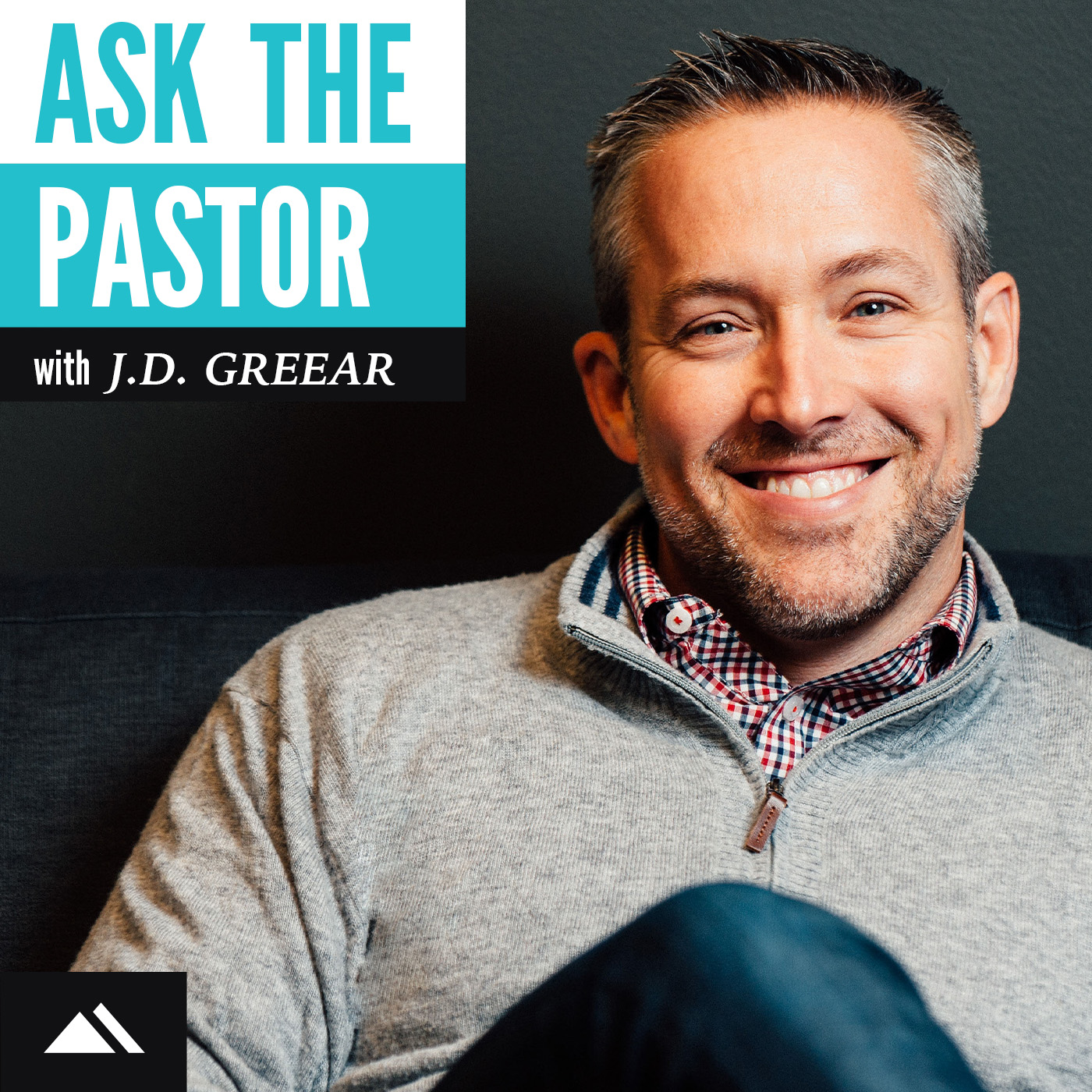

Ask the Pastor with J.D. Greear
J.D. Greear
Ask the Pastor with J.D. Greear is a weekly podcast that answers tough questions and tackles relevant issues in a way that is filled with grace, understanding, and wisdom from God’s Word. Hosted by Matt Love.
Episodes
Mentioned books

Apr 8, 2019 • 11min
Do miracles still happen?
Pastor J.D. reviews the major approaches people take regarding miracles and explains why caution, not cynicism, is necessary.
A glimpse inside this episode:
Brief review of major approaches:
Continuits: miracles never stopped
Cessasionists: Stopped after disciples died.
Third Wave: Miracles happen in movement-based waves.
Open but cautious: Nothing in the Bible that indicates that miracles have stopped.
I am open but cautious:
It’s okay to be a little skeptical, not believing everything you hear about what God has said to person, or even everything you personally feel. To be honest, I probably don’t believe 60 percent of the “miracles,” “visions” or “God told me” reports that I hear.
But don’t let that caution turn into cynicism.
One heresy: Miracles are not a benefit we can just claim, like we can Isaiah 53 ("by his stripes we are healed"). We can’t just claim healing like forgiveness.
Sam Storms in his book, Practicing the Power, talks about expectancy. What would God do? When you see him in the Gospels, how did Jesus react?
They are signs:
Miracles don’t suspend the natural order; they are a return to the natural order.
They are not just a naked display of God’s power or magic tricks, but reveal the redemptive purpose of his power.
CS Lewis: “Miracles are a retelling in small letters of the very same story which is written across the whole world in letters too large for some of us to see.”
Examples:
Jesus didn’t levitate or do a Vader choke-hold on his opponents.
He turned water into wine (which God does, but usually in a longer process).
He multiplied food so that more people could eat it (again, a divine, but usually slower process).
He made blind people see, deaf people hear, dead people alive—he took the brokenness of the world and healed it.
This Episode's Sponsor: With Ministry Grid’s library of over 3,000 training videos, it's now simpler than ever to train every volunteer and leader in your church. And this is training you can trust. Each Ministry Grid video features an experienced ministry leader who has been where you are now. Learn how to get unlimited access for you and your church at MinistryGrid.com.

Apr 1, 2019 • 15min
What Do You Wish Every Worship Leader Knew About Their Ministry?
Pastor J.D. shares some encouragement and wisdom for the worship leaders, reminding them of the vital role they play in the church.

Mar 25, 2019 • 10min
Who Are Your Biggest Preaching Influences?
Pastor J.D. talks about those who have influenced him and his preaching the most over the years and what he’s learned from them.

Mar 18, 2019 • 12min
Is Church Membership in the Bible?
Pastor J.D. discusses the difference between having a consumer and a committed relationship with the church and where the Bible discusses the concept of church membership.

4 snips
Mar 11, 2019 • 14min
How Should Christians Engage with Social Media?
Social media is reshaping our lives in profound ways, often without us realizing it. The conversation reveals the myth that communication mediums are neutral; in reality, they mold the message and influence us deeply. With startling stats, it highlights how distractions from devices can erode relationships and intimacy. Practical tips for engaging mindfully emerge, emphasizing limits, kindness, and diverse content. Ultimately, the discussion encourages Christians to thoughtfully navigate the digital landscape while fostering genuine connections.

Mar 4, 2019 • 12min
What Should Male Leadership Look Like?
Pastor J.D. addresses some common misconceptions about male leadership and explains the Bible’s plan for it in relationships, the home, and life.

Feb 25, 2019 • 10min
What Three People (Dead or Alive) Would You Want to Have Lunch With?
Pastor J.D. would obviously have lunch with Nicolas Cage, but who are the others? They just might surprise you.

Feb 18, 2019 • 13min
How Should Christians Think About the Sabbath?
Pastor J.D. shares that the Christian Sabbath is much more than a day off to do what we want to do. Rather, the Sabbath is a principle for all of life as we put God first.

Feb 11, 2019 • 12min
Is the Bible’s Language About Hell Literal or Figurative?
Pastor J.D. explains that while hell is a difficult reality, it is something that the Bible teaches, and we can’t fully understand God and his world unless we grapple with it.

Feb 4, 2019 • 13min
How Should We Respond to a Police Shooting?
Pastor J.D. continues the discussion from Episode 19 and specifically talks about how Christians should respond to a police shooting.


